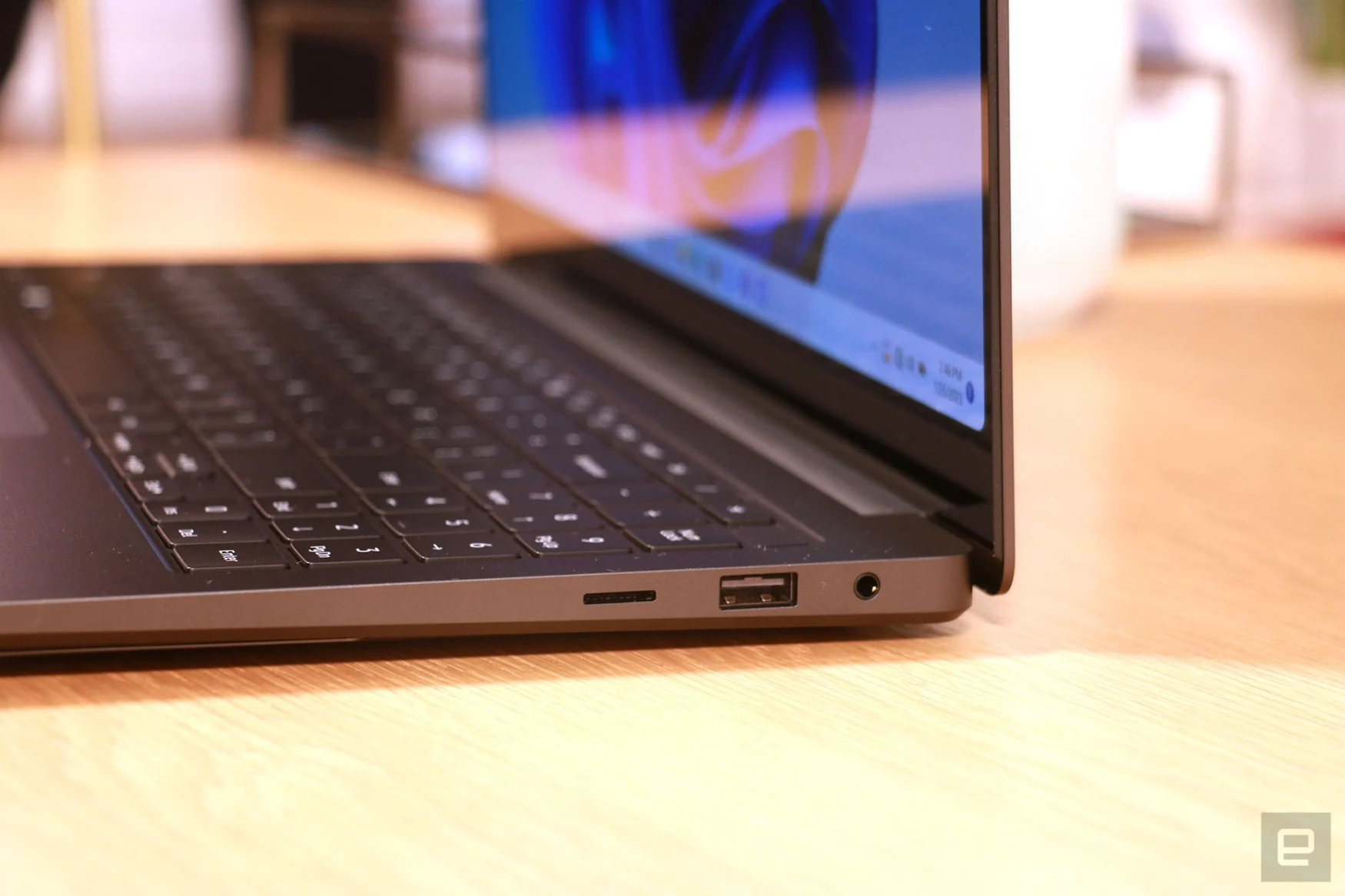Samsung is ready to take its Ultra branding to the final frontier — at least, as far as its mobile products go. After introducing an Ultra variant of its tablets last year, the company is launching a similarly high-specced model of its Galaxy Book laptops in 2023. Alongside the new S23 series of flagship phones, Samsung launched the Galaxy Book 3 Pro, Galaxy Book 3 Pro 360 and Galaxy Book 3 Ultra at its Unpacked event in San Francisco today.
The Ultra and the Pro 360 are only available in 16 inches, while the clamshell Galaxy Book 3 Pro comes in 14- and 16-inch sizes. I was able to check out a few of them at a recent hands-on event, although Samsung didn’t have every single model available. Rather than detail every configuration, I’m going to focus on my impressions of the Book 3 Ultra here. For the complete breakdown of the six other laptops, check out our news post for the full specs.
In general, the Galaxy Book 3 lineup is pretty straightforward. They’re powered by 13th-gen Intel Core i5 or i7 processors, with Iris X graphics and up to 32GB of DDR5 RAM. The Pro 360 is the only touch-enabled model, and Samsung has redesigned its display to remove a layer in the panel while still supporting touch. All models have 3K Dynamic AMOLED screens that run at 120Hz and can get as bright as 400 nits.
The star of the show, however, is the Galaxy Book 3 Ultra, and it’s a beast of a machine. It uses Intel’s Core i7 and i9 processors, and those are paired with NVIDIA’s RTX 4050 and 4070 graphics cards respectively. The i7 model comes with 16GB of DDR5 RAM while the i9 configuration has 32GB.
Despite packing such powerful guts, the Book 3 Ultra is an impressively thin and light laptop, weighing 1.79kg (3.9 pounds) and measuring 16.5mm (0.64 inches) thin. It’s not as light as the LG Gram Style I saw at CES, which is just 1.2kg, but the latter doesn’t offer RTX 30 series graphics. Samsung’s laptop also felt more premium and sturdy than the Gram, which might be thanks to its aluminum frame, although I have to say LG’s machines at least have a distinctive style. The Galaxy Books are starting to look boring, with the same MacBook-esque design they’ve come in for years. Like the Galaxy S23 phones, parts of the Book 3 series were built from recycled plastics from discarded fishing nets.
The Book Ultra is heavier than the other Book 3s, but it also offers a generous array of ports including HDMI, microSD, two Thunderbolt 4 USB-C sockets, a USB-A slot and a 3.5mm audio jack. Like most laptops with a 16-inch screen, the Ultra also sports a roomy keyboard and its trackpad is positively enormous. I wish the buttons had a bit more travel, but typing on the Book Ultra was comfortable enough. It’s no ThinkPad, but it’ll do the job.

Cherlynn Low / Engadget
I didn’t get to try out much else on the Galaxy Book 3, since we had a limited amount of time to check out a ton of devices. The few apps I opened, like Notepad and Control Panel, launched quickly, but I can’t say that’s a good measure of performance.
I also wish I had been able to check out the 1080p webcam or new features like the updated quad speaker system and PC-smartphone connectivity tools like Recent Websites and Instant Hotspot via Microsoft’s Phone Link. In theory, though, signing into your Samsung account on the Book Ultra and your Galaxy smartphone should allow you to seamlessly move a web page from your phone to your PC. Samsung’s Multi Control now supports Galaxy smartphones so you can use your laptop, tablet and phone with a keyboard and trackpad
Computer makers have been building software that makes connecting your phone and PC less of a hassle for years. While tools like this are getting better over time, it’ll be interesting to see just how useful Samsung’s offering will be in the real world. Frankly, the most intriguing thing about the Galaxy Book 3 Ultra is what Samsung has been able to squeeze into such a slim frame. The Galaxy Book 3 Ultra will be available on February 17th from $2,400, but you should wait until we can get one in for testing to determine how it stacks up against the competition on performance and battery life before dropping your money.
All products recommended by Engadget are selected by our editorial team, independent of our parent company. Some of our stories include affiliate links. If you buy something through one of these links, we may earn an affiliate commission. All prices are correct at the time of publishing.